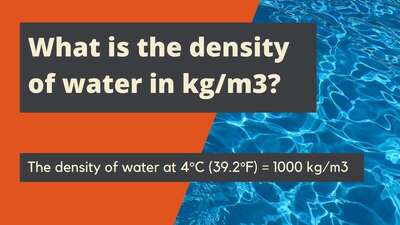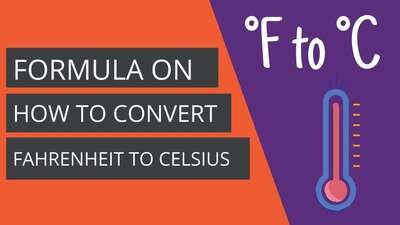Density of water kg/m3
The value of the density of water kg/m3 is an issue which is troubling you? Do you have no idea why the value of water density changes when the temperature changes? Do you want to know if the value of the seawater density is different from the value of fresh water density? We are going to explain to you all these issues. We promise, after reading this article, all your doubts will be dispelled.
The density of water is measured in different units. And one of them is the density of water kg/m3,which we want to focus on in this article. The unit kg/m3 is used mostly when it comes to measuring water of bigger volume and mass. For instance, to measure the density of water in the sea.
You know when the density of water kg/m3 is useful. But what is the value of it exactly? The answer to this question you will find down below.
What is the density of water in kg/m3?
The easiest answer to this question is: it depends. You probably are thinking now: Okay, but on what? We mentioned a little about it before, but now we want to explain it clearly. So please note that the density of water kg/m3 depends on the temperature. In other words, if the temperature changes, the density of water also changes.
How does this change look? How do the values of the density of water kg/m3 look at different temperatures?
The maximum water density kg/m3
First, you need to know that the water density has its maximum at 4 degrees Celsius (39.2 Fahrenheit). At this temperature the density of water kg/m3 is equal to 1000. This result you can also see down below:
- The density of water at 4°C (39.2°F) = 1000 kg/m3
Are you wondering why the maximum water density is at 4 degrees Celsius? It is caused by 2 physical, opposing effects acting at the same time. At the 4 degrees Celsius the clusters start forming in the water and water molecules start moving faster. These 2 effects acting together make the water density as high.
So if you know the highest value of the density of water kg/m3 and at which temperature the water density reaches it, we can move on to the next part and check how the other values, at other temperatures, present.
The other values of the density of water kg/m3
When it comes to lower or higher temperatures, the density of water kg/m3 is of course smaller than 1000. We are going to discuss 2 cases more fully. The others you will see in the density of water kg/m3 chart.
What are these 2 cases which we want to talk about? First, the value of the density of water kg/m3 at water freezing point, that is 0 degrees Celsius and second, the value of the water density in kg/m3 at water boiling point, that is 100 degrees Celsius.
Let’s start with the freezing point. What is the density of water kg/m3 at 0 degrees Celsius? In principle the water density is then equal to 999.82 kg/m3. Why did we say it “in principle”?
The value of the density of water kg/m3 at 0 degrees Celsius is different when the water is turned to ice. Then, when it comes to ice, the water density is equal to 917.00 kg/m3 only.
So what about the value of water density in kg/m3 at 100 degrees Celsius? As you may know, the value is even smaller than at 0 degrees Celsius (as a fluid, not an ice). The density of water at boiling point is equal to 958.05 kg/m3.
As we promised, a few more examples you can see in the density of water kg/m3 chart down below. Have a look:
| Temperature in Celsius | Density of water kg/m3 |
| 0 | 999.82 |
| 10 | 999.77 |
| 20 | 998.29 |
| 30 | 995.71 |
| 40 | 992.25 |
| 50 | 988.02 |
| 60 | 983.13 |
| 70 | 977.63 |
| 80 | 971.60 |
| 90 | 965.06 |
| 100 | 958.05 |
Density of seawater kg/m3
The last thing which we want to mention in this article is the density of seawater kg/m3. You have to know that seawater is denser than the fresh water which we talked about in the previous part of this article.
So what is the density of seawater kg/m3? The average seawater density is 1.025 kg/m3. But the density of seawater can range from 1020 to 1029 kg/m3.
You may be wondering now why the density of seawater is higher than the density of fresh water. It is caused by salt. When you add salt to the water, its mass will be bigger and then the density will be higher.
We hope that now the topic of the density of water kg/m3 is clear for you. You know the maximum value of water density in kg/m3 and also other values which may come in useful too. You also learned the difference between the density of fresh water and seawater.
So it is time to make your move and use this knowledge in practice – in everyday life or at Physics classes.









